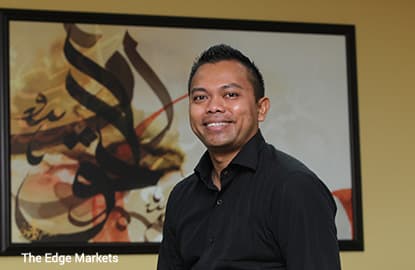
This article first appeared in Personal Wealth, The Edge Malaysia Weekly, on June 20 - June 26, 2016.
When I first heard the word “fintech” last year, I must say that I was deeply embarrassed that I had no clue what it meant! I am sure many of us have had that awkward moment in a conversation when we pretended to know what it meant while secretly googling it on our smartphones.
What is fintech? It is the latest buzzword that people use to describe companies that develop the latest technology that will make the delivery of financial services more efficient. Fintech companies range from those that offer peer-to-peer lending, crowdfunding and payment systems to wealth management robo-advisers.
The industry has grown rapidly, according to The Economist report, “The Fintech Revolution”, released in May last year. In 2014, fintech attracted almost US$12 billion worth of investments — a steep rise from only US$4 billion the previous year.
So, with a rapidly developing industry, the main question would be: Is there any money to be made? The answer is yes, and lots of it. In the same report, investment bank Goldman Sachs estimated that the size of fintech industry was US$4.7 trillion. That is a massive figure for a bunch of start-ups whose ultimate objective is to disrupt industry practices.
On the home front, newly appointed Bank Negara Malaysia governor Datuk Muhammad Ibrahim said in his keynote address at the Global Islamic Finance Forum (GIFF) that there would be a potential shift of between 10% and 40% of banking revenues to fintech companies by 2025. He also encouraged the banks to actively participate in the industry and embrace fintech as an opportunity to diversify their offerings, rather than shun it altogether.
There have been a few initiatives in shariah-compliant fintech. Examples of shariah-compliant start-ups include the Investment Account Platform in Malaysia, Beehive in Bahrain, Blossom in Indonesia and Kapital Boost in Singapore.
Each of these operate in different segments and different markets, highlighting the potential for others to come into the market. In my opinion, the steady growth and success of these shariah-compliant fintech start-ups, which have achieved a lot in a short space of time, provides an opportunity for the Islamic finance industry to capitalise on.
Having listened to Datuk Dr Mohd Daud Bakar’s speech at the GIFF, I realise that the most crucial factor that all Islamic finance practitioners need to seriously consider is the matter of relevance. “How relevant will Islamic finance be if it stops evolving?” is a very pertinent question.
If the Islamic finance industry continues to be run as it is, and not embrace the fintech revolution, there is a serious possibility that it will lose its relevance in the future. We have all seen how the giants of industry that failed to evolve simply became irrelevant.
Nokia and Kodak come to mind immediately. In the 1980s, when there was no digital alternative, Kodak reigned supreme. In the 1990s, it was unthinkable that Nokia would no longer be the market leader in mobile phones. But the reality is that these entities did not catch the wave of the next technological evolution.
Current market trends show that the fintech and financial industries can co-exist and complement each other. The advancement of fintech can help simplify a lot of the processes involved in the offering of financial products, leading to shorter application time and more focused customer engagement via technology. As a result, financial institutions can extend their services to a larger client base.
For me personally, this should be the reason for Islamic finance to embrace fintech. By doing so, Islamic financial institutions will be able to grow their customer base exponentially. I look forward to the day when shariah-compliant fintech firms can simplify and make Islamic finance products available to everyone.
Baiza Bain has 16 years of experience in various sectors of the Islamic finance industry, particularly in research and development. He is currently with Maybank Asset Management Group. The views expressed here are his own.
Save by subscribing to us for your print and/or digital copy.
P/S: The Edge is also available on Apple's AppStore and Androids' Google Play.